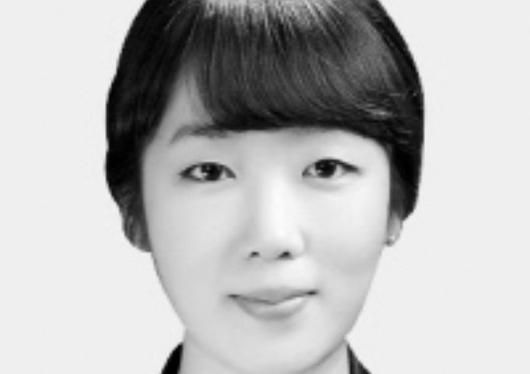 |
The scene was courtroom 412 at the Seoul Central District Court on the morning of August 14. A hearing for the first sentencing of former chief of staff Kim Ki-choon was held. Kim stood in court for making a false statement that on the day the Sewol sank, he had reported the situation in real time to former President Park Geun-hye.
It was a small courtroom with only about thirty seats for the audience. I was in the courtroom with a press ticket issued in advance. But there was a commotion outside. The bereaved families of the Sewol victims who could not enter the court due to a lack of tickets were quarreling with the court security guards.
“Come out, Kim Ki-choon!” "The judge who stopped us from observing the hearing should be ashamed of himself!" Their protests continued even while the head judge of Criminal Department 30 Gwon Hui read the sentence. Someone pounded on the court door and in that process shouting and harsh words could be heard. Judge Gwon's voice was sometimes buried or interrupted. On one occasion, the judge asked the court's security guards, "Can't you handle this?" but continued to declare the sentence.
The courtroom door was shut tight. The sentencing continued for about an hour in the small courtroom with no ventilation and air conditioning in the 36-degree heat. Sweat trickled down foreheads and outside the court, there were the appeals of the victims’ families mixed with rage. It was painful to listen to the sentencing in such a chaotic atmosphere.
Did the sentencing have to be like this? The court had erected a sign in the building and notified that "Audience tickets for trials would be distributed on a first come, first served basis." For citizens, who do not visit the court building frequently, it was an unfamiliar method. It was also different from the trials of former President Lee Myung-bak and Gyeongsangnam-do Governor Kim Kyung-soo, in which the court posted a notice on its website.
Judge Gwon had other options. Since there was room in the courtroom, he could have had the families stand there to observe the trial. In other trials, when many citizens want to observe the hearing, they are allowed to stand and witness the trial, or the judge leaves the courtroom door open. To calm things down, the judge could have announced a short recess and continue with the hearing after fully explaining to the victims' families the reason why they could not be allowed into the courtroom. Since it was a case that attracted a lot of social attention, the court could have expected a bigger audience and allocated a bigger courtroom for the hearing.
The key here is a victim-oriented approach. The trial proceedings are at the discretion of the presiding judge, and the charges against the former chief of staff was the creation and distribution of false official documents. Strictly speaking, the bereaved families were not the victims of the crime. But because the Park Geun-hye government evaded responsibility, the investigation into the truth was delayed and the damage was inflicted on the victims' families. So they could be seen as the actual victims. The Special Act on the Sewol states them as victims. The victim has the right to know what sentence the perpetrator receives.
A white paper published by the judges who heard the case against Lee Joon-seok, captain of the Sewol, and the crew includes details of how the judges understood the furious reactions of the bereaved families in shock or in grief as the natural behavior of victims and how they tried to find ways to comfort them by sufficiently listening to their voices rather than just trying to control them.
Just when the victims’ families had failed to enter the courtroom, the grand courtroom 417 in the same building was occupied by Yang Seung-tae, former chief justice of the Supreme Court.
The grand courtroom is spacious and has good air-conditioning. Although they did not have a big audience, the legal representatives of Yang asked to be tried in the grand courtroom. I would like to ask again. Was it really impossible for the families of the Sewol victims to enter the courtroom? Did the court have to declare the sentence in this manner?
▶ 최신 뉴스 ▶ 두고 두고 읽는 뉴스 ▶ 인기 무료만화
©경향신문(www.khan.co.kr), 무단전재 및 재배포 금지
이 기사의 카테고리는 언론사의 분류를 따릅니다.
기사가 속한 카테고리는 언론사가 분류합니다.
언론사는 한 기사를 두 개 이상의 카테고리로 분류할 수 있습니다.
언론사는 한 기사를 두 개 이상의 카테고리로 분류할 수 있습니다.


